Relevant Overviews
- Communication Strategy
- Content Strategy
- Fediverse
- Online Strategy
- Online Community Management
- Social Media Strategy
- Content Creation & Marketing
- Online Architecture
- Digital Transformation
- Personal Productivity
- Innovation Strategy
- Surveillance Capitalism, Social media and Polarisation (Overview)
- Communications Tactics
- Psychology
- Social Web
- Media
- Politics
- Communications Strategy
- Science&Technology
- Business

Scroll, scroll, scroll... it’s got a name: zombie scrolling syndrome... Consider parasites... some have the power of mind control. Or... zombification... the jewel wasp... grabs a cockroach twice her size... injecting nonlethal venom... dopamine... alters the roach’s behavior... cleaning itself instead of running for its life...zombifying parasite…
is that true?... first thing ... is click the link... most students don’t ... second ... see whether the article actually supports that summary... How? ... zero people are going to [fully read the article] ... too long ... [so] ... the Yeats Effect (“The best lack all conviction, while the worst / Are full of passionate intensity”). The reckless p…
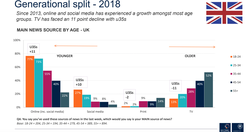
echo chambers and filter bubbles are slightly different... echo chambers could be a result of filtering or ... other processes, but filter bubbles have to be the result of algorithmic filtering...people main source of news roughly equal ... online and television... TV is more likely... people over 45. People under 45 are more likely to get their n…

as social media expands its cultural dominance, the people who can steer the online conversation will have an upper hand in whatever niche they occupy ... media, politics, business...the lessons they learned from performing on YouTube, Instagram, and TikTok will stick... regardless of where they end up... 21st century ... business moguls, politici…

In the US, radio began as a free-market free-for-all. More than five hundred radio stations sprang up in less than a decade to explore the possibilities... 40 percent were noncommercial... network of interlinked stations playing local and national content supported by local and national advertising, became dominant players...Soviet Union... ideolo…

For those who have grown up with social media... childhood, an era that was fruitfully mysterious for the rest of us, is surprisingly accessible. ... this is certain to have some kind of profound effect on the development of identity... children and teen-agers have gained a level of control that they didn’t have before... Humans have always tried …

proposal ... for a U.S. government agency to regulate online speech... on all social media.... fails to make the case... the idea that a government agency would necessarily do better is naive... think about exactly who would appoint that agency’s leader, and to what political ends they might seek to put it...

we’ve grown wary of the so-called attention econom... But we also benefit from social media and hesitate to disengage from it completely... a loose collective of developers and techno-utopians ... the IndieWeb ... developing their own social-media platforms... preserve what’s good about social media while jettisoning what’s bad... Facebook and I…
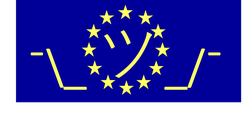
It’s taken me over ten years to move from enthusiasm, through frustration into a Zen-like state where I no longer blog about EU comms. But when the Eurobloggers called, I had to answer ;)- my link in the #EU09vs19 blog chain …

"Most criticisms lodged against the content creators that chose to work with the platforms are made with the benefit of hindsight... the decision many publishers made to close down their comment sections should be considered one of the industry’s worst blunders.... editors looked down into their article comments sections and did not like what they…

Facebook co-founder Chris Hughes laid out an argument for dismantling the social media behemoth... via antitrust legislation... a new age of innovation and competition... maybe not... competition demands more data... engagement ... efforts to increase competition risk simply aggravating these problems.... We could simply choose not to have socia…

The systems in the brain that light up when we access our beliefs are the same systems that help us understand stories... the same brain systems involved when people think about who they are and about the beliefs that are most important to them... the default mode network, a set of interconnected areas of the brain associated with identity and sel…

The web was designed to bring people together and make knowledge freely available. Everyone has a role to play to ensure the web serves humanity. By committing to the following principles, governments, companies and citizens around the world can help protect the open web as a public good and a basic right for everyone.

Traditional blogs might have swung out of favor, as we all discovered the benefits of social media and aggregating platforms, but we think they’re about to swing back in style, as we all discover the real costs and problems brought by such centralization... With the new take, we’re also trying to bring more of a classic SvN style back to the site.…

In all the urgent debate about regulating, investigating, and even breaking up internet companies, we have lost sight of the problem we are trying to confront: not technology but instead human behaviour on it... in their search for someone to blame, government outsource fault and responsibility, egged on by media (whose schadenfreude constitutes …

the Oxford Circus panic ... was amplified by social media.... Fear can be transmitted digitally as easily as it can physically—and that’s a problem because digital technologies reach everyone.... the English-speaking world is in the middle of a fear pandemic... Cognitive biases leave us ill-equipped ... Amygdala hijacks and warped media business m…

political scientist Lilliana Mason ... new book, Uncivil Agreement ... we actually agree about most things... “our conflicts are over who we think we are, rather than reasoned differences of opinion... Our opinions can be very fluid... if we wanted to come to a compromise we could, if there were not these pesky identities in the way... we disagree…

the next iteration of technology applied to politics will be a huge leap forward with a greater ability to target people... address each of the 156 million of registered voters on the US with personalized messages.... a falsehood delivered in a personalized way is likely to be more efficient but less visible than a blatant lie put on Twitter; it w…

Newport defines Deep Work as “Professional activities performed in a state of distraction-free concentration that push your cognitive capabilities to their limit. These efforts create new value, improve your skill, and are hard to replicate.”... in an average office setting such a state of prolonged “distraction-free concentration” is all but impo…

To #DeleteFacebook is to throw the baby out with the bathwater without solving the underlying problem.This is not another post on the benefits or evils of Facebook — you can figure that out for yourself…- my latest post accepted into The Mission
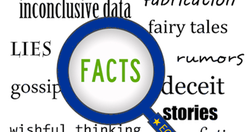
To counter disinformation and revalue quality journalism we need a competitive ecosystem of credibility indexes to stimulate innovation and avoid a Ministry of Truth, de facto or otherwise.- more on Medium

Technology is hijacking our minds and society.... we are advancing thoughtful solutions to change the system... Try these simple changes to live more intentionally with your devices.
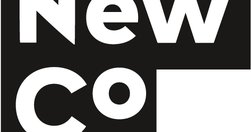
When in doubt, blame the robots. Facebook ... has proposed a familiar solution: f the algorithm has failed, let’s just build a better algorithm.... the focus on the software misses the point ... the Internet has failed as a public forum.... Perhaps we wouldn’t still be defending this failed experiment if it wasn’t so stunningly profitable... highl…

these technologies ... kind of a denial-of-service (DoS) attack on the human will. Our phones are the operating system for our life. They keep us looking and clicking... wears down certain capacities, like willpower... repeated distractions lower people’s effective IQ by up to 10 points... over twice ... that ... from long-term marijuana usage....…

uses the social network to promote her business... set up various safeguards to avoid becoming too emotionally invested ... a web browser plug-in ... replaces the social network’s endless stream ... with a single inspiring quote.... hired a social media manager ... because she could no longer stand the addictive feedback loop ... She had been a …
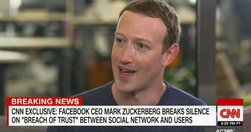
undoing radicalization is not as simple as filling people’s heads with “accurate” facts. A radicalized person will not — cannot — accept them... you need to first make the radicalized person... capable of not feeling threatened, unsafe, and wounded ... It’s very, very hard. It takes social bonds to be restored somehow — oft through therapy, educat…

Facebook and Twitter... algorithms ... are off limits ... almost impossible to monitor... make millions of what amount to editorial decisions, pumping out content without anyone fully understanding what is happening... opaque and slow to be discovered... government should require social media platforms ... open application programming interface.…

the capacity to spread ideas ... no longer limited by access to expensive... infrastructure. It’s limited instead by one’s ability to garner and distribute attention. And right now, the flow of the world’s attention is structured... by just a few digital platforms:... tincreasingly stand in for the public sphere itself... at their core... They’re …
What if “persuadability” isn’t the right metric to look at? ... Information warfare expert Molly McKew, who specializes in U.S.–Russia relations... "There aren’t good tools to evaluate the impact of shadow campaigns... Information and psychological operations ... are not just about information, but about changing behavior... of more than 36,000 …

the response from the platforms is the equivalent of politicians’ “hopes and prayers” after a school shooting... irrefutable proof that these actors are leveraging social media ... to force divisive and often false narratives into our public discourse... Twitter, Facebook, and Google have not taken a more ambitious approach to stopping abuse of…
Relevant Overviews
- Communication Strategy
- Content Strategy
- Fediverse
- Online Strategy
- Online Community Management
- Social Media Strategy
- Content Creation & Marketing
- Online Architecture
- Digital Transformation
- Personal Productivity
- Innovation Strategy
- Surveillance Capitalism, Social media and Polarisation (Overview)
- Communications Tactics
- Psychology
- Social Web
- Media
- Politics
- Communications Strategy
- Science&Technology
- Business